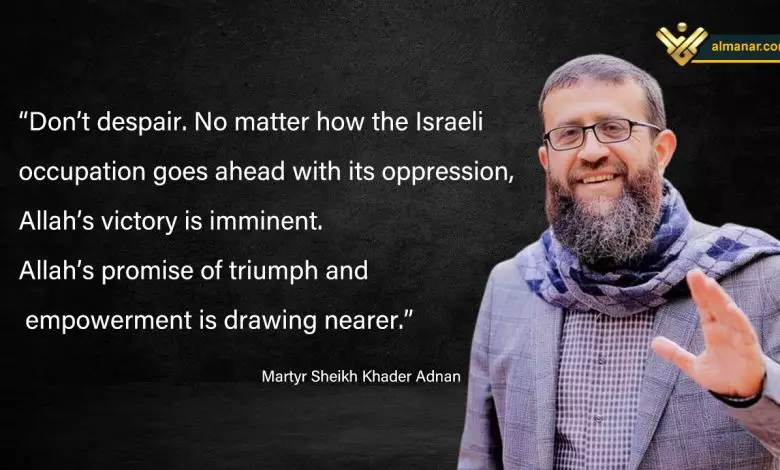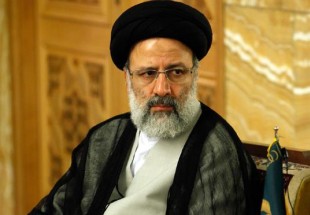Khıdır Adnan: The Pioneer Hunger Striker with a Medal of Martyrdom
“Palestine is Allah’s land, which he has promised us of, a promise of the afterlife.”

Aforementioned are the last words of Sheikh Khader Adnan’s will, written on the 58th day of his hunger strike he had launched on February 5, in protest against his arbitrary detention by the Israeli occupation.
Sheikh Adnan was the first Palestinian prisoner to go on a hunger strike in 2004 to protest the Israeli occupation administrative detention, an Israeli arrest policy that that allows the occupation military to hold Palestinian prisoners indefinitely on secret information without charging them or allowing them to stand trial.
Born in 1978, Sheikh Adnan descends from Arraba in Jenin, in the northern occupied West Bank. He is married to Randa Moussa and a father of nine.
He has an undergraduate degree in mathematics, and was pursuing a master’s degree in economics. In addition, he owned a bakery and a produce store in his home town of Arraba.
The senior Islamic Jihad member was arrested by Israeli occupation forces for thirteen times, spending nearly nine years in captivity, over his role in the resistance acts against the Israeli occupation.
Six Hunger Strikes
Sheikh Adnan has been known for his high determination as he underwent hunger strike for six times in protest against the administrative detention.
In 2004, he started a 25-day hunger strike that was ended by his freedom.
In 2012, Sheikh Khader Adnan launched a 66-day hunger strike, while in 2015 he refused food for other 56 days.
Later in 2018, his hunger strike lasted for 58 days. In 2021, the prominent Islamic Jihad official was released from Israeli jails after going on a hunger strike for 25 days.
His hunger strike in 2023 was the longest one as it was his last acts of resistance. He embraced martyrdom after 86 days of Israeli negligence that has been considered by his family and resistance groups as a “deliberate assassination” by occupation authorities.
The hunger strikes launched by Sheikh Adnan have been seen as pioneer acts leading the way for so many other Palestinian prisoners to start such strikes as a way to protest their detention.




